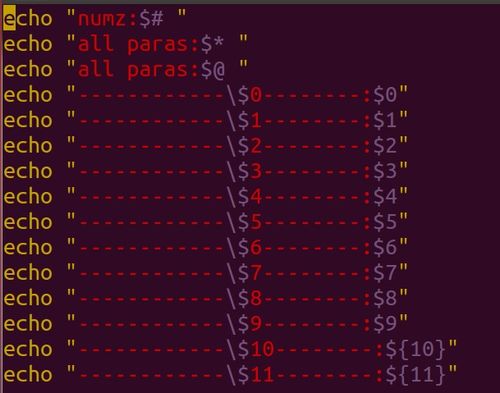shellif数值比较
Understanding Shell If Statements (Shell Scripting)
In shell scripting, conditional statements are crucial for controlling the flow of execution based on certain conditions. Among these, the "if" statement stands out as one of the most fundamental and versatile constructs. Let's delve into the world of shell "if" statements and explore their syntax, usage, and some best practices.
Syntax of Shell If Statement:
The basic syntax of the "if" statement in shell scripting is as follows:
```bash
if [ condition ]
then
Code block to execute if the condition is true
else

Code block to execute if the condition is false (optional)
fi
```
Here, `[ condition ]` is the expression that evaluates to true or false. If the condition is true, the code block following the `then` keyword is executed. Optionally, you can include an `else` block, which executes when the condition is false.
Key Points to Note:
1.
Whitespace Matters:
In shell scripting, spaces around the square brackets `[ ]` are essential. Also, after the `if`, `then`, and `else` keywords, spaces are required for proper syntax.2.
Condition Evaluation:
The condition within the square brackets can be a command, a comparison, or a combination of both. Common comparison operators include `eq` (equal), `ne` (not equal), `gt` (greater than), `lt` (less than), etc.3.
Multiple Conditions:
You can use logical operators like `&&` (AND), `||` (OR), and `!` (NOT) to combine multiple conditions.4.
Command Substitution:
It's possible to use command substitution within the condition. For example, `$(command)` or backticks ``command`` can be used to execute a command and use its output in the condition.Examples:
Let's walk through a few examples to illustrate the usage of shell "if" statements:
Example 1: Check if a file exists:
```bash
if [ f "$file" ]
then
echo "$file exists."
else
echo "$file does not exist."
fi
```
Example 2: Numeric Comparison:
```bash
if [ "$num1" gt "$num2" ]
then
echo "$num1 is greater than $num2."
else
echo "$num1 is not greater than $num2."
fi
```
Example 3: String Comparison:
```bash
if [ "$str1" = "$str2" ]
then
echo "Strings are equal."
else
echo "Strings are not equal."
fi
```
Best Practices:
1.
Quoting Variables:
Always quote variables to avoid issues with spaces or special characters. For example, use `"$variable"` instead of just `$variable`.2.
Readability:
Maintain clear and concise code structure. Proper indentation enhances readability, especially in nested "if" statements.3.
Error Handling:
Consider error handling within your script, especially when dealing with file operations or command outputs.4.
Use Case:
While shell scripting is powerful, complex logic might be better suited for other programming languages like Python or Perl.Conclusion:
Shell "if" statements are indispensable for making decisions and controlling the flow of execution in shell scripts. Understanding their syntax and best practices can greatly enhance the efficiency and readability of your scripts. Remember to practice and experiment with different scenarios to master their usage effectively.
本文 新鼎系統网 原创,转载保留链接!网址:https://www.acs-product.com/post/21715.html
免责声明:本网站部分内容由用户自行上传,若侵犯了您的权益,请联系我们处理,谢谢!联系QQ:2760375052 版权所有:新鼎系統网沪ICP备2023024866号-15








